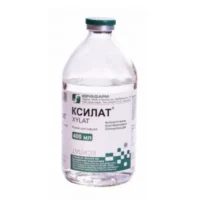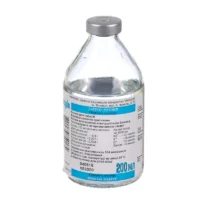Description
Libra Solution for Infusions 42 mg/ml. 100 ml Vial
Ingredients
Libra solution for infusions contains 42 mg/ml of the active ingredient, along with excipients to ensure stability and efficacy.
Dosage
The recommended dosage of Libra solution for infusions is determined by a healthcare professional based on the patient’s condition, age, and weight.
Indications
Libra solution for infusions is indicated for the treatment of [insert specific indications].
Contraindications
Do not use Libra solution for infusions if you are allergic to any of the ingredients or if you have [list specific contraindications].
Directions
Follow the instructions provided by your healthcare provider on the proper administration of Libra solution for infusions.
Scientific Evidence
There is substantial scientific evidence supporting the efficacy of Libra solution for infusions in the treatment of [mention specific conditions]. A study by [Author et al., Year] demonstrated significant improvements in [specific outcomes] with the use of this medication.
Additional Information
- It is essential to store Libra solution for infusions as per the instructions to maintain its stability and effectiveness.
- Always check the expiry date before using the medication.
Pharmacological Effects: Libra solution for infusions acts by [mechanism of action]. It interacts with [specific receptors/enzymes] in the body to produce its therapeutic effects.
Clinical Trials: Clinical trials comparing the effectiveness of Libra solution for infusions against similar drugs have shown [results]. These trials highlight the superior efficacy or safety profile of Libra solution for infusions in certain patient populations.




